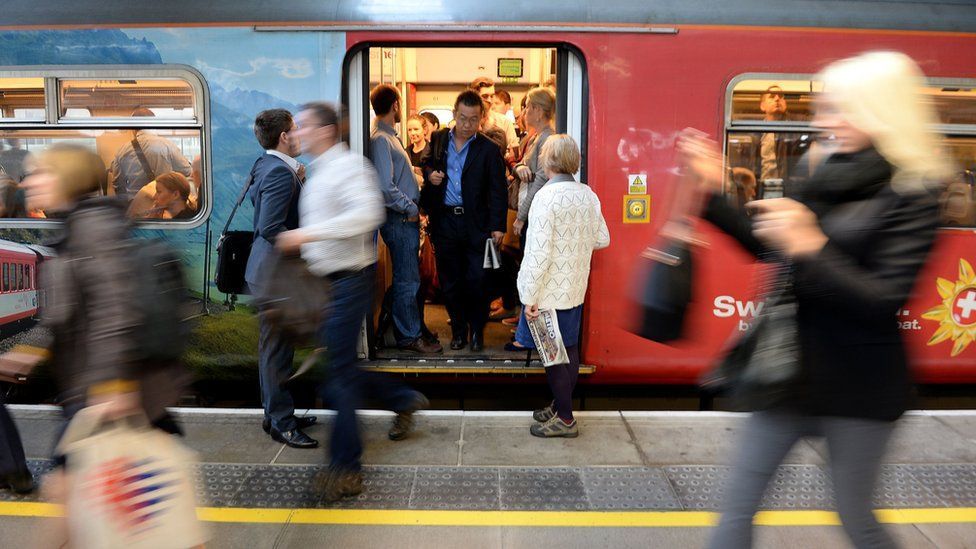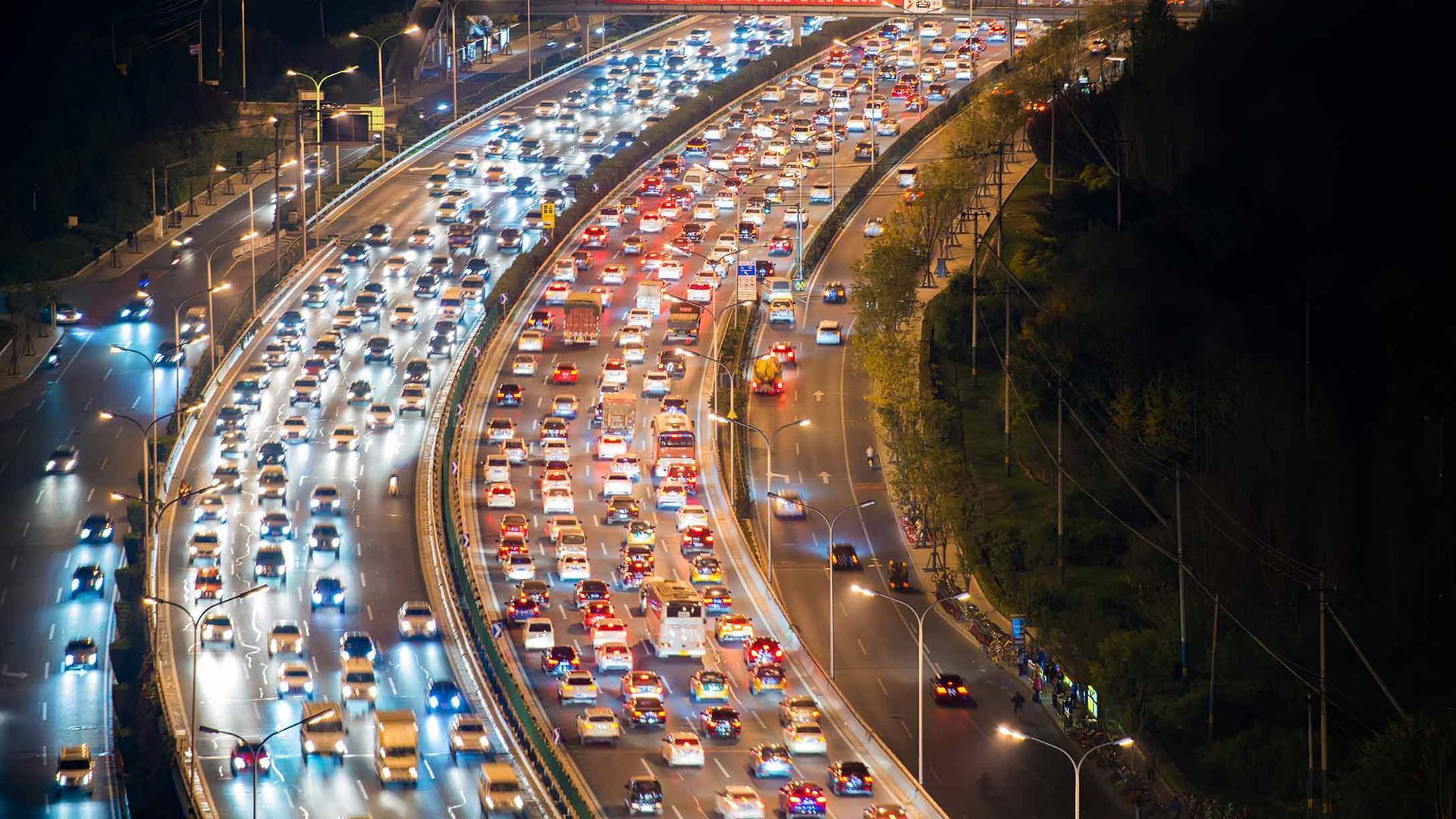Winning together: What can the fan travel planning world learn from the approach to team work of English Premier League Champion's Liverpool FC ?

First a disclaimer. I am a massive fan of Liverpool Football Club!!!!
When the best Club in the world clinched the 2024-2025 English Premier League title earlier this week under their new manager, Arne Slot, they didn’t just win a trophy—they showcased a masterclass in teamwork, tactical evolution, and resilience. Slot’s fresh approach and strategic vision revitalised the squad, blending creativity with discipline, and proving that effective teamwork on and off the pitch is the foundation of success.
Off the pitch, Liverpool FC has also demonstrated leadership in sustainability (kudos to Rishi Jain and team), with a commitment to reducing their environmental impact. This holistic approach to success—on-field brilliance combined with sustainable practices— should inspire us to rethink sustainable spectator travel demand management for major sports events. Just like the team’s collective effort, the success of event travel planning relies on strategic planning, collaboration, and ensuring a sustainable and seamless experience for all involved. Here’s how in our view the teamwork seen under Arne Slot at Liverpool FC and more generally across the Club can inform the technical world of managing fan travel, with an emphasis on sustainable practices.
1. The Power of Clear Roles and Responsibilities
One of Liverpool’s key strengths this season is the clarity with which each player knows their role under Slot’s tactical setup. From Mohamed Salah’s attacking flair to the defensive solidity of Virgil van Dijk, every player has a defined responsibility.
This structure enables smooth and effective game play, where each individual can focus on their strengths and contribute to the collective effort.
In the world of travel demand management, the same clarity is crucial. A successful sports event depends on a team of specialists, each managing a different aspect of logistics BUT crucially under the leadership of a single focal point on (Van Dyk) and off the pitch (Slot):
- Local transport authorities to facilitate interaction across the city/regions communities
- Transport Providers ensure smooth and timely movement of fans to and from the venue.
- Traffic management teams manage road congestion and ensure safe pedestrian routes.
- Security and Crowd Management Teams handle safety and direct large crowds efficiently.
- Event Organizers monitor everything in real-time to adapt and address emerging challenges.
- Event/Venue Communications Teams ensure that fans understand the best way to travel.
Just as Slot has created a system where each Liverpool player knows their part, travel demand management relies on precise coordination between all stakeholders to ensure that the event operates seamlessly.
2. Coordination and Communication: A Winning Combination
Liverpool’s success this season is built on seamless communication and tactical flexibility. Under Arne Slot, the players have thrived on both their understanding of Slot's system and their ability to communicate and adapt quickly during matches.
Whether it’s a quick pass from Curtis Jones to Darwin Núñez or a last-minute tactical change from the sidelines, communication is key.
The same principle applies to planning sustainable travel at major sports events. The key to success lies in continuous communication between various event partners:
- Transport providers must stay in constant contact with event organizers to adjust routes or add services based on real-time demand.
- Local authorities need to work with event organisers, police and so on to understand potential crowd movement issues around the last mile and beyond.
- Fans themselves benefit from advanced information and timely updates, such as changes in transport schedules, security check updates, or advice on the best routes into the venue.
In both football management and event planning, effective communication ensures that no part of the team is out of sync, allowing for an overall smooth experience.
3. Adaptability: Responding to the Unexpected
Arne Slot has demonstrated his tactical adaptability throughout the 2024/25 season, changing formations and strategies to respond to different opponents. Whether it’s shifting from a high-pressing 4-3-3 to a more compact 4-2-3-1, Slot’s ability to adjust ensures Liverpool stays one step ahead, no matter the situation.
In travel demand management, adaptability is just as important. Sporting events, particularly large-scale ones, come with unpredictable challenges: surges in crowd numbers, public transport disruptions, or unexpected weather conditions. A well-designed travel plan needs to incorporate flexible systems that can quickly adapt to these changes. For example:
- Backup transportation options (e.g., buses or shuttles) can be deployed in case of train delays.
- Crowd management teams must be able to redirect traffic flow if congestion occurs unexpectedly.
- Real-time communication channels can help inform fans and transport providers about alternative routes or delays.
By embracing flexibility, both sports teams and event managers ensure they are prepared for whatever comes their way.
4. Building a Winning Team for Travel Demand Management
Just like Liverpool’s diverse squad, effective travel demand management requires a mix of expertise. A football team isn’t just made up of attackers; it includes defenders, midfielders, and goalkeepers—all working together for a common goal. In the same vein, travel demand management for sports events requires the collaboration of professionals from multiple disciplines:
- Communications - fans don't change travel behaviour of their own accord. Careful pre-positioning is required.
- Transport strategists and operations gurus - who not only have the vision to conceptualise what good looks like but have the practical knowledge to make it happen
- Analysts - that can get underneath the skin of things and to the heard of the issue to understand what will work (and what will not)
- Commercial - lateral thinking is often required to conceive how better spectator movements can benefit stakeholders commercially (it can!)
- Sustainability - of course being able to monitor and respond to the carbon footprint nuances of changes in spectator travel is vital
- Fan engagement - those that understand that fan travel is an extension of and key to overall fan experience - a great experience at the match can be destroyed by a poor travel experience home!
- And more!
Together, these experts can form a cohesive unit—just like Liverpool’s squad. Each plays a vital role in ensuring the event runs smoothly, and their combined efforts create a seamless experience for all attendees.
5. Fan Engagement and Experience: The Red Way
Liverpool is famous for its passionate fanbase, and under Arne Slot, the club has continued to foster that sense of community. Whether it’s the electric atmosphere at Anfield or the way the team engages with fans across the globe, Liverpool has always understood the importance of fan connection.
When managing travel for major sports events, creating an exceptional experience for fans is just as important. Fans aren’t just customers—they are part of the event’s larger narrative. By focusing on the following areas, event organizers can ensure a positive fan experience:
- Efficient transport options: Pre-event planning should include easy access to and from the venue, with options for all types of fans (public transport, car parks, cycling routes, etc.).
- Real-time communication: Fans should be kept in the loop about potential disruptions, transport options, and estimated wait times.
- Clear signage and friendly staff: Easy-to-follow signage and helpful staff can make navigating through large crowds a lot less stressful.
Creating a fan experience that mirrors the positive energy at Anfield will keep spirits high and ensure that people remember the event for all the right reasons.
6. Sustainability: Liverpool’s Leadership and the Importance of Sustainable Travel
Off the pitch, Liverpool FC has become a leader in sustainability, with initiatives to reduce their carbon footprint and promote environmentally-friendly practices. The club has invested in green technologies, waste reduction, and community projects that promote sustainability. This commitment not only sets a positive example but also aligns with the growing global emphasis on environmental responsibility.
In travel demand management, sustainability must also be at the forefront. With growing concerns about climate change and congestion in urban areas, ensuring that fans can access events using sustainable modes of transportation is more important than ever. Event planners can encourage eco-friendly travel options, such as:
- Public transport: Encouraging the use of trains, buses, and trams to reduce traffic and emissions.
- Cycling and walking routes: Designing venues to be more pedestrian and bike-friendly to encourage sustainable travel.
- Carpooling and ride-sharing programs: Offering fans incentives to carpool or share rides to reduce the number of vehicles on the road.
Just as Liverpool FC champions sustainability off the pitch, event organizers have a responsibility to integrate green initiatives into their planning, ensuring that fans have options to reduce their carbon footprint while still enjoying the event.
7. Technology: The Smart Use of Data and Analytics
Arne Slot’s managerial success is built on not just tactical awareness, but also the smart use of data to improve team performance. Liverpool’s investment in performance analytics, fitness tracking, and match data has been a major factor in their recent success.
Similarly, technology plays a critical role in managing travel demand for sports events:
- Journey planning solutions that enable fans to seamlessly plan their travel to and from the match in such a way that the 'right' modes are prioritised.
- Smart ticketing systems allow fans to pre-purchase their travel in advance, reducing bottlenecks at stations and so on and making for a seamless experience.
- Real-time traffic data helps event organisers optimise routes and predict delays.
- Crowd-sensing technology enables better management of crowd flows, ensuring safety and efficiency.
The use of technology, much like Liverpool’s data-driven approach to football, ensures that every aspect of the travel experience is optimised for efficiency and effectiveness.
8. Resilience and Crisis Management: Overcoming Challenges
Liverpool’s resilience, whether it’s coming back from a goal down (as they had to on Sunday) or bouncing back from setbacks during the season, is a hallmark of their success. This mentality extends to how travel demand is managed for major events. Just as Liverpool needs to adjust when things go wrong on the pitch, event organisers must be prepared to respond to unexpected challenges such:
- Sudden surges in crowd numbers due to a popular team performance
- Transport delays or disruptions
- Weather-related obstacles
By having contingency plans in place and being ready to adapt on the fly, event organisers can maintain control and ensure the event remains a success, no matter the challenges.
Conclusion: A Winning Formula for Success
Just like Liverpool FC’s triumphs under Arne Slot, successful travel demand management for sports events comes down to teamwork, planning, and execution. By ensuring clear roles, seamless communication, adaptability, fan-centric strategies, and a commitment to sustainability, you can create an experience that leaves fans with lasting memories.
As Liverpool demonstrated this season, when everyone works together towards a common goal, greatness follows. Whether on the football field or in the world of event planning, teamwork is the ultimate key to success—and that teamwork includes building a more sustainable future for sports fans everywhere.
Whether it’s supporting Liverpool FC in their sustainable travel efforts off the pitch or using our travel demand management prowess to enhance spectator travel experience at next years FIFA Men’s World Cup while mitigating the local community travel impact we love galvanising teams to unite under a common goal. If you want to hear more then please come say hello@intheround.global #YNWA
















